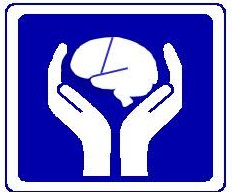Welcome to the Cognitive Neuroimaging Unit (CNU) Home Page. We are a division within both the Veterans Affairs Medical Center and the University of Minnesota School of Medicine. The Unit focuses upon brain mapping of cognitive functions in people who are healthy and in patients with mental disease. We use methods from cognitive neuroscience to dissect mental processes. These methods include chronometrics (reaction time studies of performance), study of brain lesions, neural network modeling, and neuroimaging. Neuroimaging techniques permit visualization of mental processes and help to understand their localization, sequencing, and network interactions. Our neuroimaging efforts currently employ PET (positron emission tomography), fMRI (functional magnetic resonance imaging), electrical measurements of evoked responses (ERP), and magnetoencephalography (MEG).
Since higher cognitive functions (language, attention, memory, affect, etc.) both interact and merge at multiple levels, the Unit does not restrict inquiry to any one system. Our basic research in normal cognition includes studies elucidating various components of these higher brain systems in normal volunteers. One of our guiding hypotheses posits that the study of the neural bases of mental disorders will converge with the mapping of normal cognitive functions to provide novel insights. To that end, different investigators within the Unit study also the brain disturbances associated with psychiatric disorders such as schizophrenia, dementia, depression, post-traumatic stress disorder, and several others. The Unit’s presence within a medical center stimulates development of practical clinical applications from the more basic research programs. The University environment provides a medium for interdisciplinary collaboration and training. Active collaborations include Psychology, Psychiatry, GRECC (Geriatric Research, Education Clinical Center), Brain Science Center, and the Carlson School of Business.
There are currently two projects being completed.
1) Cognitive aging
2) Posttraumatic Stress Disorder (PTSD)
